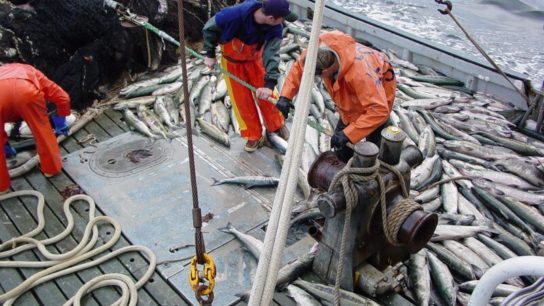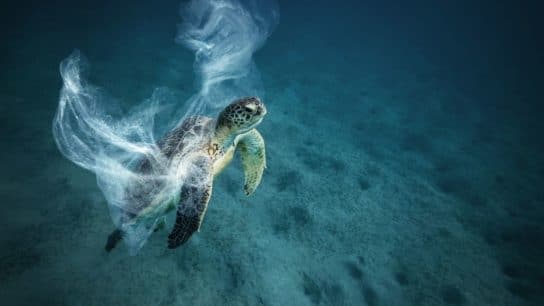The number of marine species natural tapers off as you head towards the poles. Ecologists have assumed that this global pattern has remained stable over recent centuries, but a new study has found that the ocean around the equator has become too hot for many species to survive due to climate change. They warn that this migration of marine species could trigger a mass extinction event.
—
As species flee to cooler waters towards the poles, this will likely have significant implications for marine ecosystems and human livelihoods. The same thing happened 252 million years ago, and 90% of all marine species died.
The authors of the study looked at distribution records for nearly 50 000 marine species collected since 1955 and found a growing dip over time in the “species bell curve”- a bell-shaped gradient of species richness. This dip is especially noticeable around the equator.
As oceans warm, species have moved towards the poles. Although the warming at the equator of 0.6℃ over the past 50 years is relatively modest compared with warming at higher latitudes, tropical species have to move further to remain in their thermal niche compared with species elsewhere.
The authors studied 10 major groups of marine species (including pelagic fish, reef fish and molluscs) and found that their numbers either plateaued or declined at latitudes with mean annual sea-surface temperatures above 20℃.
Today, species richness is greatest in the northern hemisphere in latitudes around 30°N (off southern China and Mexico) and in the south around 20°S (off northern Australia and southern Brazil).
Looking Back Through History
252 million years ago, at the end of the Permian geological period, global temperatures warmed by 10℃ over 30 000-60 000 years as a result of greenhouse gas emissions from volcanic eruptions in Siberia. During this time, the peak in biodiversity at the equator flattened, which resulted in the death of 90% of all marine species.
Then, 125 000 years ago, there was a similar movement of reef corals away from the tropics, but there was no associated mass extinction event.
The authors have suggested that their results might be a foreshadowing of another mass extinction event in the near future as marine species move into the subtropics, where they may struggle to compete and adapt.
Today, the species richness of forams (a type of hard-shelled, single-celled plankton) has been dropping since the last ice age, which ended around 15 000 years ago. Plankton forms a vital part of the marine foodweb, and the authors say that this decline in recent decades has accelerated due to human-driven climate change.
You might also like: Japan Will Release Radioactive Fukushima Water into the Pacific Ocean
What Does This Mean?
Losing species in tropical ecosystems means that ecological resilience to environmental changes will be reduced, which compromises ecosystem persistence.
In subtropical ecosystems, species richness is increasing, which will bring species invaders, novel predator-prey interactions, and new competitive relationships. This could result in ecosystem collapse in which species go extinct and ecosystem services (such as food supplies) are permanently changed.
This will also affect human livelihoods. For example, many tropical island nations depend on the revenue from tuna fishing fleets through the selling of licenses in their territorial waters. Highly mobile tuna species are likely to move rapidly toward the subtropics, outside the island nations’ waters.
What Can We Do?
We need to urgently reduce emissions to curb global temperature increase. We could also put safeguards in place for biodiversity conservation. Currently, 2.7% of the ocean is conserved in fully or highly protected reserves, well short of the 10% target by 2020 under the UN Convention on Biological Diversity.
However, a group of 41 nations is pushing to set a new target of protecting 30% of the ocean by 2030. This “30 by 30” target could ban seafloor mining and remove fishing in reserves.
Climate change is impacting the best-known and strongest global pattern in ecology. We simply do not have the time to hesitate further in addressing this.

















